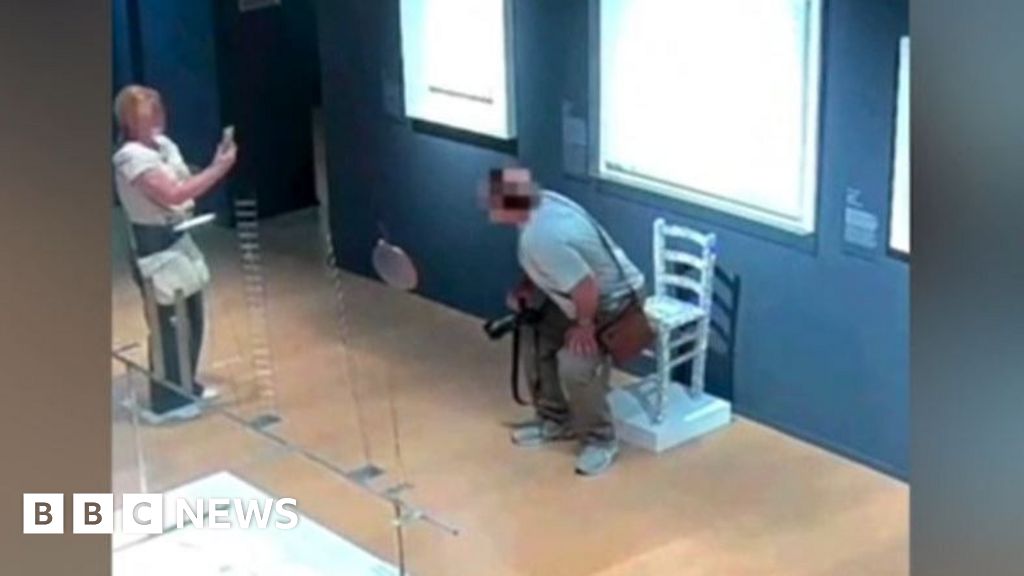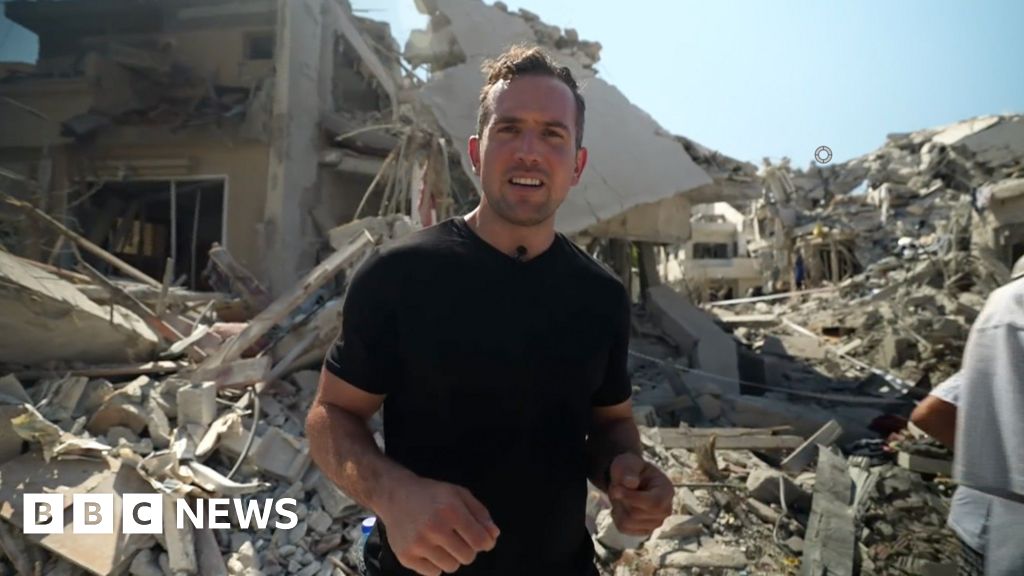ARTICLE AD BOX
Image source, Reuters
Image caption,Emmanuel Macron has led diplomatic efforts this week to defuse tensions with Russia over Ukraine
Russia's EU ambassador has told the BBC his country still believes diplomacy can help de-escalate the crisis over Ukraine.
Vladimir Chizhov said his country had no intention of invading anybody, but warned it was important not to provoke Russia into changing its mind.
It comes after a flurry of diplomatic activity on Monday and Tuesday.
Russia has repeatedly denied any plans to invade Ukraine.
But with well over 100,000 troops massed near the Ukrainian border, some Western countries including the US have warned that a Russian attack could come at any time.
Reviving peace talks
After two days of intense diplomacy led by French President Emmanuel Macron, there is some suggestion that a renewed focus on the so-called Minsk agreements - which aim to end the conflict with Russian-backed separatists in eastern Ukraine - could be used as a basis to defuse the current crisis.
Some diplomats agree that the agreements could offer a route to de-escalation, with France's ambassador to the United States, Philippe Etienne, tweeting they should be used to "build a viable political solution".
President Macron said talks would be revived as early as Thursday and include Russia and Ukraine along with France and Germany - known as the Normandy quartet.
Mr Chizhov did not say whether Russia planned to move troops away from Russia's border with Ukraine, and instead asked why no-one was talking about the number of Ukrainian soldiers directly facing Russia.
But he was clear that further talks could still produce results.
"We certainly believe there is still room for diplomacy," he told the BBC's Europe Editor Katya Adler.
Vladimir Chizhov told Katya Adler that Nato's expansion in Eastern Europe was key to any talks
Russia has made a series of demands to the West over European security, including a guarantee that Ukraine never becomes a member of the West's defensive military alliance, Nato.
This demand has been flatly rejected, with Western countries insisting that only Ukraine can make decisions about its own security arrangements.
But Russia's EU ambassador made clear that Russia still saw Nato's eastern expansion as a key point in any negotiation.
"We are not going to forget it. And we cannot afford to forget it. Five waves of Nato expansion, that was not the evolution that we expected," Mr Chizhov told the BBC.
Minsk agreements
The envoy's apparent optimism for continued diplomacy followed two days of frenzied diplomacy from European leaders seeking to end Russia's military escalation.
French President Emmanuel Macron has been at the forefront of those efforts, visiting Moscow, Kyiv and Berlin.
After his meeting with Ukrainian President Volodymyr Zelensky in Kyiv on Tuesday, Mr Macron said both the Russian and Ukrainian leaders had recommitted to implementing the so-called Minsk peace agreements.
The agreements - backed by Ukraine, Russia, France and Germany in 2014-15 - aim to bring an end to the Russian-backed separatist conflict in eastern Ukraine, which continues today.
President Zelensky has in the past criticised the agreement, which was signed by his predecessor, saying that it gives too much away to the rebel groups which control parts of Ukraine's Donbas region.
Moscow has long accused the Ukrainian government of failing to implement the agreements, and at Monday's news conference the Russian president urged Ukraine to respect them: "Like it or not, my beauty, you have to put up with it," Mr Putin said.
On Wednesday, Kremlin spokesperson Dmitry Peskov said that there were "positive signals that a solution to Ukraine could be based only on fulfilling the Minsk agreements".
However, Ukraine and Russia disagree over what the agreements mean in practice, and Kyiv fears that the accords would give too much autonomy to the eastern regions currently under rebel control, with Moscow retaining significant influence there.
At a meeting in Berlin on Tuesday, the leaders of France, Germany and Poland backed the Minsk agreements and reaffirmed their support for Ukraine's sovereignty.
Belarus exercises
Thousands of Russian troops are due to take part in military exercises that start in Belarus on Thursday, in a further escalation of tensions close to Ukraine's borders.
Belarus is a close ally of Russia and Nato has warned as many as 30,000 Russian troops could take part.
Image source, Russian defence ministry
Image caption,Thousands of Russian troops have arrived in Belarus for joint military drills
The Kremlin spokesman admitted the joint drills were serious but he pointed out the nature of threats was higher than before. Mr Chizhov told the BBC that Russian troops currently stationed in Belarus would return to their permanent bases.
He also repeated Russia's insistence that it had no intention of invading anybody, but added that "the important thing is not to provoke Russia into changing its mind".
A teenage rock band is singing for peace near Ukraine's front line

 3 years ago
35
3 years ago
35








 English (US) ·
English (US) ·